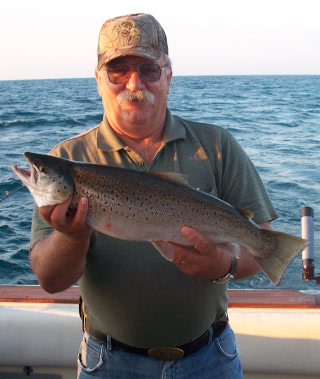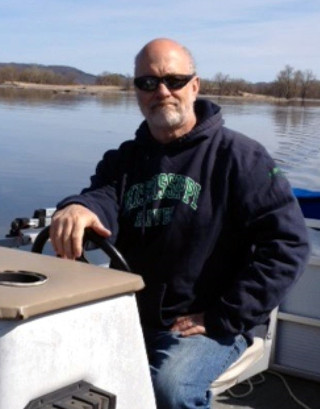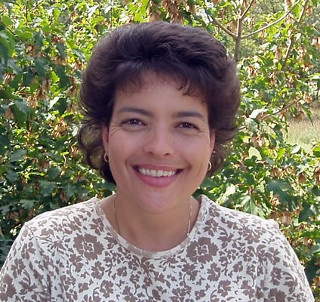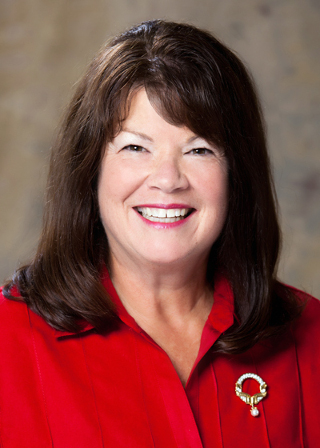Richard Anderson
Dr. Richard Anderson was at Western Illinois University, Macomb, IL, from 1979 to 2010 (retired) serving as a faculty member, department chair, and associate dean. Dr. Anderson was also Director of Kibbe Life Sciences Field Station located on the Mississippi River near Warsaw, IL, during this period. His main research focus was freshwater invertebrate ecology in large rivers. In 1980 Dr. Anderson attended his first meeting of the MRRC in Dubuque, IA, (the 13th Annual Meeting of the MRRC). He was involved in the MRRC for the next 28 years severing as a participant, member of the Executive Board or Board of Directors (81-82, 91-93, 98-00), and as President (92-93, 99-00). He and his students were active participants at annual meetings over the 25+ year period presenting over 70 papers covering results of a variety of grants and research projects conducted on the Mississippi River. His involvement with MRRC has been a rewarding experience. |

|
Tom Claflin
Dr. Tom Clafin served as a faculty member of the Department of Biology at the University of Wisconsin- La Crosse from 1966 to 2001. He initiated the first aquatic course (Limnology) in 1967 and helped to grow the aquatic science program during ensuing years. He started the UWL River Studies Center in 1970 and served as its Director for 20 years. Dr. Claflin spent his last five years on campus as the department chairperson. Regarding the MRRC, Dr. Claflin was one of the four folks that got it going back in 1967-68 (with Cal Fremling, Brother George Pahl and Cal McNabb, all from Winona State and St. Mary’s).
|
|
Ken Lubinski
Dr. Ken Lubinski is a river ecologist. Before he retired at the end of 2014, he was the Chief of the River Ecology Branch at the Upper Midwest Environmental Sciences Center in La Crosse, WI. His most recent paper, “Rivers, Scholars, and Society: A Situation Analysis” appeared in the book “Rivers of the Anthropocene” (2017). In 2016, he published a book titled “Things that Flow: Humor, Poetry, and Essays about Rivers and Life”. He is facilitating (voluntarily) an informal floodplain forest restoration effort at the Reno Bottoms in upper Pool 9 of the UMR. He continues to post personal stories, poems, and commentary at a blog (www.oldmanriverdialogs.com) that provides opportunities for scientists and non-scientists to share river information, thoughts, and values. |
|
Teresa Newton
Dr. Teresa J. Newton is a Fishery Biologist with the U.S. Geological Survey’s Upper Midwest Environmental Sciences Center in La Crosse, WI. Dr. Newton has been employed at USGS since 1990 where her research interests focus on the ecology, conservation, and ecotoxicology of native freshwater mussels. She uses a combination of comparative and experimental approaches to understand factors affecting the distribution and abundance of freshwater mussels, identify biochemical and physiological indicators of stress, and determine the roles that mussels play in large river food webs. Collectively, these studies provide information to help resource managers design effective restoration and conservation strategies for native freshwater mussels. As a student finishing up a PhD at Iowa State, Dr. Newton presented her research findings at the MRRC. She found it to be an incredible environment for a student to present at, and the knowledge gained about the river and the scientists who study it was invaluable. Shortly after Dr. Newton moved to La Crosse, she was asked to become Vice President (1992-1993) and then President (1993-1994) of the MRRC. It is an event she stills look forward to attending, some 28 years later!! |
|
Pam Thiel
Pam Thiel is a retired River Rat that spent her entire professional career working on the Upper Mississippi River System, starting with the Illinois State Water Survey, followed by positions with WI DNR and finally the US Fish and Wildlife Service. The range of her river experiences includes mussel surveys, fish telemetry studies, habitat project design, invertebrate monitoring, and invasive and endangered species assessments. Pam has been attending MRRC meetings since the mid-70s. She served on the MRRC Board of Directors, received a best paper award and is a Friend of the River recipient. |
|





